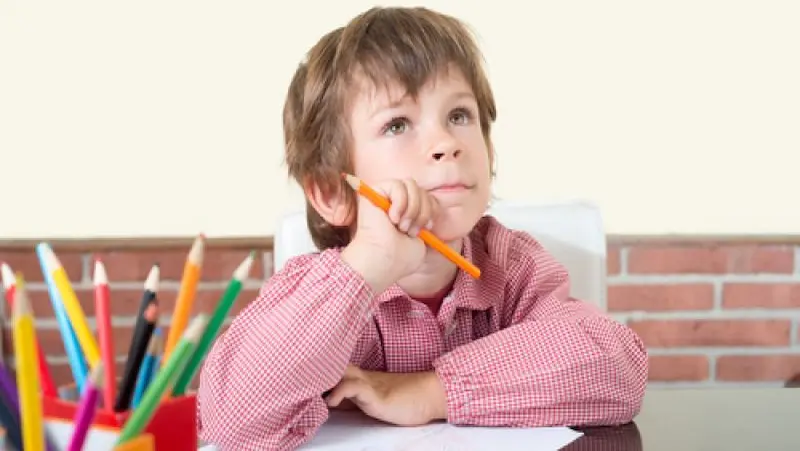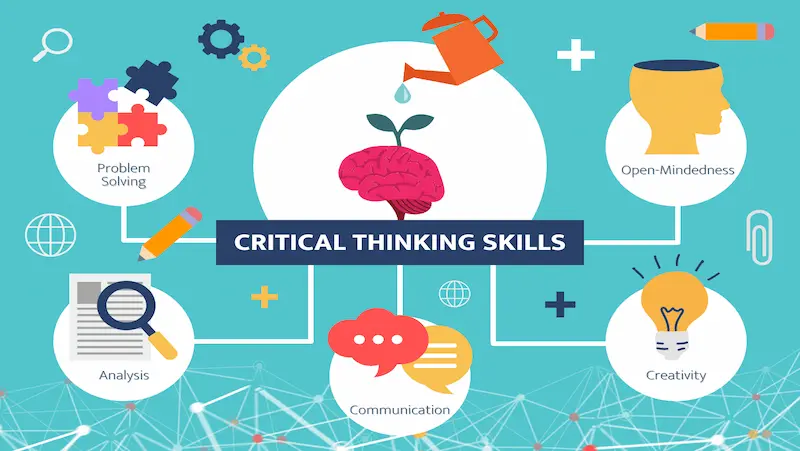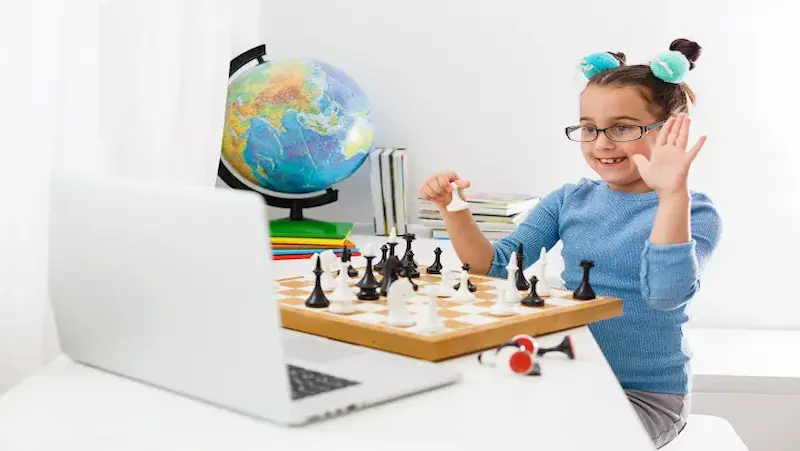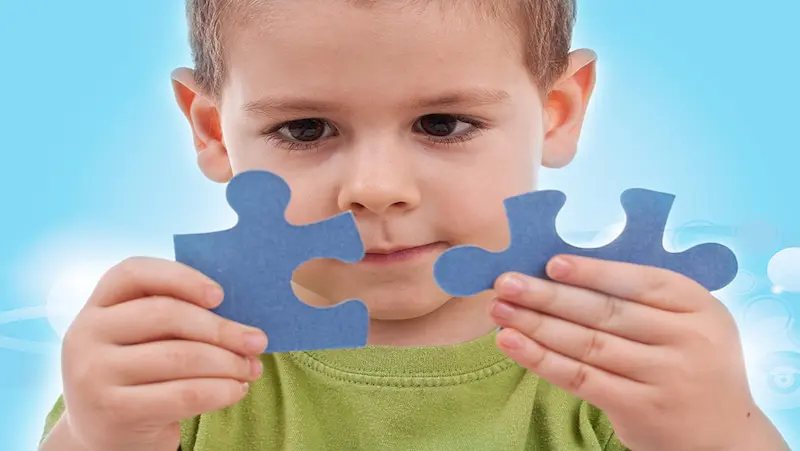Are you looking to equip your children with essential critical thinking skills for success in life? As parents, it is vital to foster their intellectual growth by teaching them key skills. Encourage them to ask questions, analyze information objectively, and evaluate different perspectives.
Teach them to think critically, problem-solve creatively, and make informed decisions. These skills will empower them to navigate a complex world, fostering independence, adaptability, and lifelong learning.
Table of contents
Introduction
In today’s world, critical thinking skills have become increasingly important. They enable individuals to navigate a rapidly changing and complex environment, making informed decisions and solving problems effectively. For children, developing critical thinking skills provides numerous benefits.
In academics, critical thinking enhances their ability to analyze information, evaluate arguments, and think independently, leading to improved academic performance. In problem-solving, critical thinking promotes creative and logical reasoning, enabling children to find innovative solutions.
Additionally, critical thinking empowers children to make informed decisions by considering multiple perspectives, weighing evidence, and understanding consequences. Ultimately, these skills equip children with the tools they need for success in various aspects of life.
Critical thinking skills for kids are essential in developing their ability to analyze information, solve problems, and make informed decisions. Encouraging children to ask questions, consider different perspectives, and evaluate evidence helps them become independent thinkers and prepares them to face challenges with confidence and creativity as they grow and learn.

1. Problem Identification and Definition
Critical thinking is the ability to objectively analyze information, evaluate arguments, and make reasoned judgments. It is a vital skill in today’s world as it helps individuals navigate the complexities of life and make informed decisions. To teach kids how to identify and define problems effectively, parents can engage in the following practical tips and activities:
1. Encourage questioning: Encourage your child to ask questions about the world around them. Teach them to inquire about why things work the way they do and what problems exist that need solving.
2. Define the problem: Teach your child to clearly define the problem they are facing. Help them break it down into smaller, manageable parts. This promotes critical thinking by focusing on the core issue.
3. Brainstorming sessions: Engage in brainstorming activities with your child. Encourage them to think of as many potential solutions as possible, without judgment. This fosters creative and divergent thinking.
4. Analyze cause and effect: Help your child identify the root causes of a problem and the potential effects of different solutions. This trains them to think critically about the consequences of their decisions.
Also, Conflict resolution skills for kids include the ability to analyze cause and effect, which enables them to identify the root of conflicts and their consequences. By understanding the reasons behind disagreements and how actions impact others, children can develop empathy and find constructive ways to resolve conflicts, fostering harmonious relationships and effective communication with their peers.
5. Role-playing scenarios: Create real-life scenarios where your child encounters problems and challenges. Encourage them to think critically about the situation, consider different perspectives, and devise solutions.
RoboCHAMPS programs encourage critical thinking by engaging children in hands-on activities that foster problem-solving skills through the exciting world of robotics and coding.
Real-life examples showcasing the application of critical thinking skills include:
1. Current events analysis: Discuss news articles or current events with your child, encouraging them to think critically about the information presented, identify biases, and evaluate different viewpoints.
2. Science experiments: Engage your child in hands-on experiments where they need to observe, analyze data, and draw conclusions. This nurtures their critical thinking abilities.
3. Decision-making & Problem-solving scenarios: Present your child with hypothetical situations that require them to make decisions. Encourage them to weigh different options, consider potential outcomes, and make informed choices. Encourage your child to tackle puzzles, riddles, or logical problems. Teaching kids about emotions and decision-making is vital for their emotional intelligence and personal development. By helping them identify and understand their feelings, children can learn to manage emotions in a healthy way.
By incorporating these practical tips and real-life examples into your parenting approach, you can help your child develop and apply critical thinking skills effectively, empowering them to thrive academically and in problem-solving and decision-making situations.

2. Analysis and Evaluation
Critical thinking is a cognitive skill that involves analyzing and evaluating information, arguments, and evidence in a logical and objective manner. It helps individuals make well-informed decisions, solve problems effectively, and understand complex concepts. To help children develop the ability to analyze and evaluate information, arguments, and evidence, parents can employ the following strategies:
1. Teach information literacy: Help your child distinguish between reliable and unreliable sources of information. Teach them how to fact-check and verify information using credible sources.
2. Ask probing questions: Encourage your child to ask questions about the information they encounter. Teach them to question the source, motives, biases, and logical consistency of the information.
3. Teach logical reasoning & Discuss different perspectives: Introduce your child to basic principles of logic, such as identifying logical fallacies and understanding deductive and inductive reasoning. This equips them to assess the strength of arguments. Encourage your child to consider multiple viewpoints on a topic.
Engaging exercises and scenarios to practice critical analysis and evaluation include:
1. Debate or discussion activities: Organize debates or discussions where your child can analyze different perspectives, present evidence, and evaluate arguments.
2. Case studies: Present your child with real or fictional case studies where they must analyze the given information, consider different factors, and make reasoned judgments or recommendations.
3. Critical reading: Select age-appropriate books, articles, or essays that challenge your child’s thinking. Encourage them to critically analyze the content, identify main arguments, and evaluate evidence presented.
By implementing these strategies and engaging in exercises that promote critical analysis and evaluation, parents can help their children develop and refine their critical thinking skills, enabling them to become discerning and analytical thinkers.
CodeCHAMPS empowers young learners to develop essential critical thinking skills through its interactive coding courses, enabling them to creatively tackle challenges in the digital realm.

3. Creative Thinking and Innovation
Importance of creativity in critical thinking:
1. Out-of-the-box problem-solving: Creativity adds a valuable dimension to critical thinking by encouraging individuals to explore unconventional approaches and alternative solutions. It allows children to think beyond traditional boundaries, facilitating innovative problem-solving and encouraging them to explore diverse perspectives.
2. Adaptability and flexibility: In a rapidly changing world, creative thinking enables children to adapt to new challenges and situations. It encourages them to embrace ambiguity, think flexibly, and generate unique ideas. By nurturing creativity alongside critical thinking, children develop the ability to adapt, innovate, and find creative solutions to complex problems.
3. Expression and communication: Creativity enhances children’s ability to express their thoughts and ideas in imaginative and engaging ways. It empowers them to communicate their critical thinking effectively, whether through art, writing, storytelling, or other creative outlets. This combination of critical thinking and creativity allows children to share their insights and perspectives more compellingly.
Techniques and exercises to foster creative thinking in children:
1. Brainstorming: Encourage children to engage in brainstorming sessions where they generate as many ideas as possible, without judgment. Create a safe and supportive environment where they feel free to express their thoughts and explore unconventional solutions.
Also, Stress management for kids can be facilitated through brainstorming activities. Encouraging children to engage in creative problem-solving and express their feelings and concerns during brainstorming sessions helps them develop coping strategies, reduce anxiety, and build resilience in the face of stressors, ultimately promoting their emotional well-being and overall mental health.
2. Divergent thinking activities: Engage children in activities that encourage them to think divergently, such as open-ended questions, riddles, or puzzles with multiple possible answers. This encourages them to explore different possibilities and consider various perspectives.
3. Creative exploration: Provide children with opportunities for creative exploration, such as arts and crafts, imaginative play, or storytelling. Encourage them to think creatively, experiment, and express their ideas through different mediums. This helps foster their creative thinking skills while allowing them to develop their unique voices.
Creative thinking often enables individuals to solve problems in unconventional ways. For instance, in the field of medicine, creative thinking has led to the development of new surgical techniques, medical devices, and treatments that revolutionize healthcare and improve patient outcomes.
By nurturing creative thinking in children, parents can unlock their full potential for imaginative problem-solving and encourage them to explore new possibilities.

4. Decision Making and Problem Solving
Effective decision-making and problem-solving are essential skills that empower individuals to make informed choices and overcome challenges. Here’s a step-by-step guide for parents to teach kids these approaches:
1. Identify the problem: Help your child clearly define the problem they are facing. Encourage them to understand the root cause and break it down into smaller, manageable parts.
2. Gather information: Teach your child to collect relevant information about the problem. This may involve researching, interviewing, or observing.
3. Generate alternatives: Encourage your child to brainstorm multiple possible solutions or approaches. Encourage creative thinking and explore various options without judgment.
4. Evaluate options: Help your child analyze and evaluate each alternative. Discuss the pros and cons, potential consequences, and feasibility of each option.
5. Make a decision: Guide your child in making a final decision. Encourage them to select the option that aligns with their goals, values, and the information they have gathered. Emphasize the importance of being confident in their choice. Positive thinking for kids empowers them to approach decision-making with confidence and optimism. Encouraging a positive mindset helps children believe in their abilities, embrace challenges, and make decisions that align with their values and goals, leading to a more fulfilling and successful path in life.
6. Implement the decision & Reflect and learn: Assist your child in developing an action plan to implement their decision. Help them consider any necessary resources, timelines, or steps to take. After the decision has been implemented, engage in a reflection process with your child.
Explore more about computer coding for kids
Practical scenarios for children to apply decision-making strategies:
1. Role-playing situations: Create scenarios where your child must make decisions, such as a fictional business venture or a community project. Allow them to navigate through challenges and make choices while considering various factors.
2. Everyday choices: Encourage your child to practice decision-making in their daily lives, such as choosing extracurricular activities, planning their schedule, or deciding what to eat for lunch. Discuss the decision-making process with them and ask for their reasoning.
3. Ethical dilemmas: Present your child with ethical dilemmas and discuss the different perspectives and potential consequences of each choice. This encourages them to think critically about moral considerations and make principled decisions.
These skills will enable children to approach problems and choices in a thoughtful and strategic manner, leading to better outcomes and fostering their independence and problem-solving abilities.

5. Communication and Collaboration
Children’s language development is a fascinating and complex process that begins from birth and continues throughout childhood. During this period, children learn to understand and use language, gradually progressing from simple sounds and gestures to forming words, sentences, and eventually engaging in conversations. Effective communication and collaboration play crucial roles in enhancing critical thinking skills. They enable individuals to articulate their thoughts, listen actively, exchange ideas, and work collaboratively to solve problems. Here are some tips for parents:
1. Develop communication skills:
– Encourage open dialogue: Create a supportive environment where your child feels comfortable expressing their thoughts and opinions without fear of judgment.
– Teach effective expression: Help your child develop clarity in their communication by encouraging them to articulate their ideas, use appropriate language, and organize their thoughts.
– Promote non-verbal communication: Teach your child the importance of non-verbal cues, such as maintaining eye contact, using appropriate body language, and active engagement in conversations.
2. Foster active listening:
– Model active listening: Set an example by actively listening to your child and showing genuine interest in their ideas. Reflect back their thoughts to show that you are engaged.
– Practice paraphrasing: Teach your child to paraphrase or summarize what others have said to ensure understanding and demonstrate active listening.
– Encourage asking questions: Promote asking thoughtful questions to gather more information and show a genuine desire to understand others’ perspectives.
Mindfulness exercises for kids, such as focused listening, can promote a sense of calm and self-awareness. Engaging children in activities where they actively listen to sounds in their environment, like bird songs or flowing water, helps them develop attention and concentration skills while cultivating mindfulness, which can benefit their emotional well-being and overall mental focus.
3. Encourage teamwork:
– Collaborative projects: Engage your child in collaborative projects or group activities that require teamwork. This can include building puzzles, creating art together, or working on science experiments as a team.
– Role-playing exercises: Organize role-playing scenarios where your child must work in a team to solve problems or make decisions. This allows them to understand the dynamics of teamwork and the importance of effective communication.
– Foster empathy and respect: Teach your child to appreciate diverse perspectives, value others’ contributions, and practice empathy. This creates a positive and inclusive atmosphere for effective collaboration.
Activities that encourage collaborative problem-solving and communication:
1. Group discussions: Initiate group discussions where children can exchange ideas and opinions on specific topics. Encourage them to actively listen, respect others’ viewpoints, and build on each other’s ideas.
2. Collaborative storytelling: Encourage children to work together to create a story, with each child contributing a part. This activity fosters communication, creativity, and teamwork as they listen to each other’s ideas and build a coherent narrative.
3. Team-building games: Engage children in team-building activities or games, such as building structures with blocks or solving puzzles collectively. These activities promote collaboration, effective communication, and problem-solving skills.
By focusing on developing communication skills, active listening, and teamwork, parents can nurture their children’s ability to effectively express themselves, understand others, and work collaboratively. Child development and communication skills are closely intertwined, as effective communication plays a crucial role in a child’s overall growth and well-being. As children develop their language and social skills, they learn to express their thoughts, emotions, and needs more clearly, which enhances their ability to build relationships, problem-solve, and succeed in various aspects of life.

Conclusion
In conclusion, effective communication, active listening, and collaboration are essential components of developing critical thinking skills in children. By fostering these skills, parents can empower their children to think critically, solve problems, and make informed decisions.
For more information regarding robotics kits for kids. Click here!
Teaching children how to express their thoughts clearly, actively listen to others, and work collaboratively allows them to exchange ideas, consider diverse perspectives, and find innovative solutions collectively. Through various activities and practical tips, parents can provide opportunities for their children to practice and strengthen these skills.
By nurturing effective communication and collaboration, parents pave the way for their children to become independent thinkers and problem solvers, equipped to navigate the complexities of the world.
Exploring the diverse educational offerings on BrightChamps opens up exciting opportunities for children to learn and thrive in a supportive and dynamic online environment.
To get your hands on more such educational and free resources on coding, robotics, game development, etc., do check out the Brightchamps Blog Page now! Learn about robotics for kids also.
Frequently Asked Questions
Critical thinking skills are important for children’s development as they enhance problem-solving abilities, foster independent thinking, and promote informed decision-making.
Parents can foster critical thinking skills in children from an early age by encouraging curiosity, asking open-ended questions, and providing opportunities for exploration and problem-solving.
Practical activities to enhance critical thinking in kids include puzzles, debates, experiments, and analyzing real-life situations to encourage analysis, evaluation, and logical reasoning.
Critical thinking skills benefit children academically by improving comprehension, analytical skills, and problem-solving abilities. They also help in making sound decisions and navigating challenges in daily life.
The five essential critical thinking skills for parents to teach their kids include analysis, evaluation, logical reasoning, problem-solving, and information literacy.
Parents can incorporate critical thinking skills into everyday conversations by encouraging thoughtful questioning, discussing multiple perspectives, and fostering open-mindedness during discussions and problem-solving situations.
Common challenges in teaching critical thinking skills include resistance to questioning, limited exposure to diverse perspectives, and difficulty in evaluating information. Overcoming these challenges requires patience, modeling, and providing varied learning experiences.
Parents can nurture creativity alongside critical thinking by encouraging imaginative play, promoting arts and crafts, and providing opportunities for self-expression and divergent thinking.
Parents can assess their children’s critical thinking skills through observation, analyzing problem-solving approaches, evaluating decision-making processes, and reviewing their ability to analyze and evaluate information.
Recommended resources for parents interested in cultivating critical thinking skills in children include books like “Mind in the Making” by Ellen Galinsky and “Thinking, Fast and Slow” by Daniel Kahneman, as well as online platforms that offer critical thinking activities and resources for children.


 We are an army of educators and passionate learners from BrightChamps family, committed to providing free learning resources to kids, parents & students.
We are an army of educators and passionate learners from BrightChamps family, committed to providing free learning resources to kids, parents & students.
















